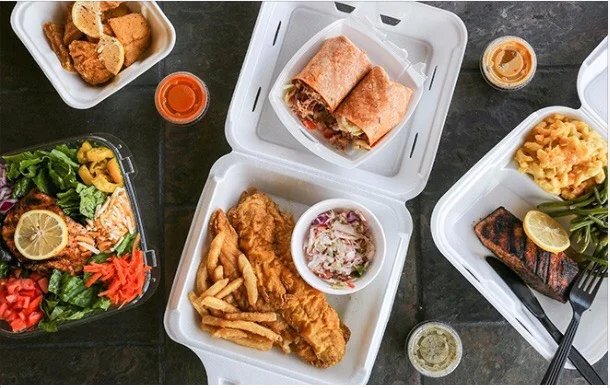At some point, over the past years, salt developed a bad rap. There are a few reasons why and they all are logical. Sodium in large amounts can be dangerous. It can lead to an array of health problems such as high blood pressure, stroke, heart disease, water retention, and kidney stones to name a few. When people became more educated on the dangers of sodium and processed table salt, sea salt became the more popular option. Sea salt is great. it taste better and its a lot less processed, but we missed one thing. Table salt is Iodized, and Iodine is a major factor in the health of your thyroid. Your thyroid helps you regulate hormonal levels, metabolism, heart rate, nervous system and a few other functions. Its pretty important. Studies show that there may be 2 billion people that are iodine deficient, with up to 50 million of them suffering from serious symptoms of iodine deficiency . Here are only a few of the more common symptoms.
Slowed metabolism - Have you been cutting carbs and sodium, doing fasted cardio, staying at a calorie deficit and still struggle to lose that last few percentages of body fat. Iodine deficiency may be the culprit. Low Iodine levels can slow down your body's ability to break food down into usable nutrients.
Depression, Anxiety, Mood swings - Nutritional imbalances causing depression and anxiety can be another entire article in itself. There is a strong relationship between Iodine levels and hormonal balance. Low Iodine levels can disrupt the proper functioning of hormone receptors, this can lead to all types of mood swings, anxiety, and lack of libido. Have you been stuck in a funk for a while? Iodine deficiency may be to blame.
Breast Cancer in women, (cyst and soreness along with menstrual cycles) - Iodine is specifically important in decreasing the chances of breast cancer in women. There is a lot more research that needs to be done, but studies have shown major correlation between Iodine deficiency and breast cancer. It has also been shown that there is a connection between low iodine and breast pain or tenderness during the menstrual cycle.
Other symptoms include Thyroid enlargement (goiter), brain damage, autism, and Fetal hypothyroidism (Iodine is especially necessary for pregnant women).
How to make sure you're getting enough
Supplementation
Supplementing Iodine is tricky. Its just as easy to get too much iodine , as it is to not get enough. Over supplementation of Iodine has some serious side effects. It can cause an over productive thyroid gland (hyperthyroidism). Hyperthyroidism can cause heat sensitivity, rapid heart rate or palpitations, trembling hands, inability to gain weight despite eating more, sudden fatigue and insomnia at night. Those are some nasty side effects. There is a huge , ongoing debate amongnutritionist about whether iodine supplementation is safe. I say, if there's that much confusion going on, learn how to get the proper amount naturally. Don't even bother with supplementation.
How to naturally raise your Iodine levels.
1) Eat seaweed and any other sea vegetables.
1) Stop drinking soda. Drink filtered water.
2) Avoid pesticides, by washing all your produce thoroughly. Eat unprocessed , organic food as often as possible.
3) Switch it up , and use iodized table salt instead of sea salt every now and then, or a mixture.
4) Avoid all Sources of Bromine. Bromine apparently plays a large role in Iodine deficiency.
What has worked well for me and my nutrition coaching clients is taking a multivitamin that contains a small amount of Iodine (maybe 10 - 20% of our DV) combined with using table salt a few times a week. Most of us don't have seaweed just sitting around in the kitchen. Most of the time, my clients come to me thinking they need to go on some strict calorie restricting diet, but I never move on to anything before making sure they are getting full , nutrient dense meals and all of the minerals and vitamins they need. Imagine a client doing a low carb diet for months, only to find out they had major Iodine deficiency that was slowing down their metabolism. As a coaching client of mine , one of your first habits to develop will be taking a multi-vitamin.
*If you're wondering whether you have an Iodine deficiency or not, ask your doctor for a urine Iodine challenge test, or an SSKI. Both are simple and en expensive.
I hope this was informative to someone out there . As always, be yourself, and strive for progress not perfection.
- Reginald Baum




